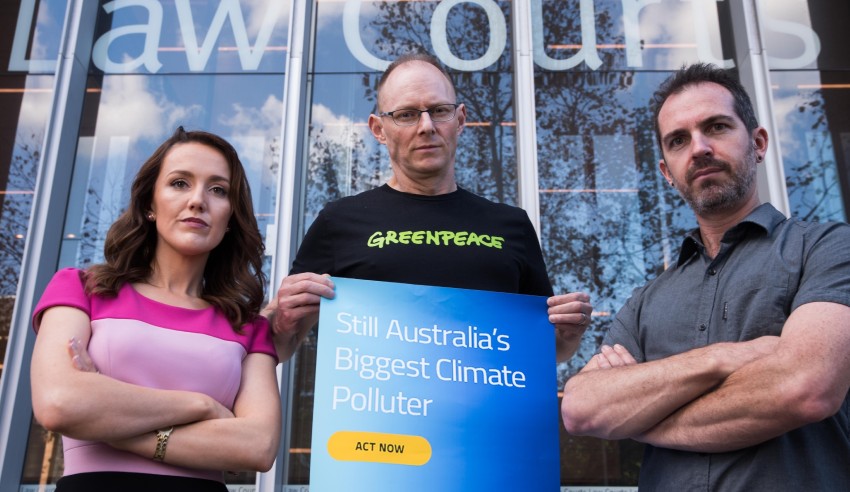After a Federal Court hearing last week, a judge has found that Greenpeace did not violate copyright law in its campaign naming AGL as Australia’s biggest climate polluter.

AGL filed a lawsuit against Greenpeace after one of the charity’s campaigns used the AGL logo in a “cheeky” way to pressure the company to switch to renewable energy, wherein it labelled AGL as a corporate climate polluter and accused the electricity giant of “greenwashing” its image.
The Honourable Justice Burley delivered judgement on Tuesday, finding that Greenpeace had not infringed AGL’s trademark, and that the overwhelming majority of Greenpeace’s campaign materials did not infringe AGL’s copyright.
The small number of Greenpeace’s campaign materials that was not protected by the “fair dealing” copyright defence, was used for protests rather than to “ridicule” AGL.
The judge found that “copyright protects the owner’s interest in the artistic work, it does not provide a mechanism for protecting a copyright owner’s reputation”. He maintained that “it is not the use of AGL’s logo in the campaign that causes damage, but rather the informational message.”
Katrina Bullock, general counsel for Greenpeace Australia Pacific, said that the landmark case was a win for freedom of expression, setting an important legal precedent in copyright law.
“[This] legal victory is good news for charities, advocacy organisations, satirists and anyone else who seeks to rely on the ‘fair dealing’ freedom of speech safeguard in the Copyright Act to criticise, review, satirise or parody powerful corporations,” she said.
Greenpeace Australia Pacific senior campaigner Glenn Walker said that the ruling was a significant victory but that the battle against AGL will go on, as the company is still responsible for more climate pollution than any other company.
“[The] ruling in favour of Greenpeace is an affirmation that the law is on the side of freedom of expression. But this is just the first victory,” he said.
“Our campaign to expose AGL as Australia’s single biggest corporate contributor to climate pollution, and to pressure it to close its coal-burning power stations will continue for as long as it takes to win. This is much bigger than a court case over a logo – it’s a fight for the future.”

Lauren is the commercial content writer within Momentum Media’s professional services suite, including Lawyers Weekly, Accountants Daily and HR Leader, focusing primarily on commercial and client content, features and ebooks. Prior to joining Lawyers Weekly, she worked as a trade journalist for media and travel industry publications. Born in England, Lauren enjoys trying new bars and restaurants, attending music festivals and travelling.